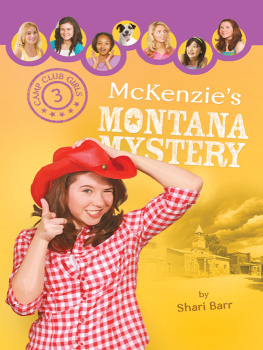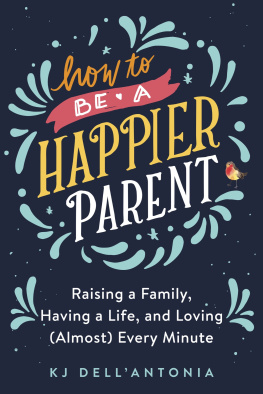Chapter 1
F IRST, ILL TELL ABOUT THE ROBBERY OUR PARENTS committed. Then about the murders, which happened later. The robbery is the more important part, since it served to set my and my sisters lives on the courses they eventually followed. Nothing would make complete sense without that being told first.
Our parents were the least likely two people in the world to rob a bank. They werent strange people, not obviously criminals. No one wouldve thought they were destined to end up the way they did. They were just regularalthough, of course, that kind of thinking became null and void the moment they did rob a bank.
MY FATHER , Bev Parsons, was a country boy born in Marengo County, Alabama, in 1923, and came out of high school in 1939, burning to be in the Army Air Corpsthe branch that became the Air Force. He went in at Demopolis, trained at Randolph, near San Antonio, longed to be a fighter pilot, but lacked the aptitude and so learned bombardiering instead. He flew the B-25s, the light-medium Mitchells, that were seeing duty in the Philippines, and later over Osaka, where they rained destruction on the earthboth on the enemy and undeserving people alike. He was a tall, winning, smiling handsome six-footer (he barely fitted into his bombardiers compartment), with a big square, expectant face and knobby cheekbones and sensuous lips and long, attractive feminine eyelashes. He had white shiny teeth and short black hair he was proud ofas he was of his name. Bev. Captain Bev Parsons. He never conceded that Beverly was a womans name in most peoples minds. It grew from Anglo-Saxon roots, he said. Its a common name in England. Vivian, Gwen and Shirley are mens names there. No one confuses them with women. He was a nonstop talker, was open-minded for a southerner, had graceful obliging manners that shouldve taken him far in the Air Force, but didnt. His quick hazel eyes would search around any room he was in, finding someone to pay attention to himmy sister and me, ordinarily. He told corny jokes in a southern theatrical style, could do card tricks and magic tricks, could detach his thumb and replace it, make a handkerchief disappear and come back. He could play boogie-woogie piano, and sometimes would talk Dixie to us, and sometimes like Amos n Andy. He had lost some of his hearing by flying the Mitchells, and was sensitive about it. But he looked sharp in his honest GI haircut and blue captains tunic and generally conveyed a warmth that was genuine and made my twin sister and me love him. It was also probably the reason my mother had been attracted to him (though they couldnt have been more unsuited and different) and unluckily gotten pregnant from their one hasty encounter after meeting at a party honoring returned airmen, near where he was re-training to learn supply-officer duties at Fort Lewis, in March 1945when no one needed him to drop bombs anymore. They were married immediately when they found out. Her parents, who lived in Tacoma and were Jewish immigrants from Poland, didnt approve. They were educated mathematics teachers and semiprofessional musicians and popular concertizers in Poznan whod escaped after 1918 and come to Washington State through Canada, and becameof all thingsschool custodians. Being Jews meant little to them by then, or to our motherjust an old, exacting, constricted conception of life they were happy to put behind them in a land where there apparently were no Jews.
But for their only daughter to marry a smiling, talkative only-son of Scotch-Irish Alabama backwoods timber estimators was never in their thinking, and they soon put it out of their thinking altogether. And while from a distance, it may seem that our parents were merely not made for one another, it was more true that when our mother married our father, it betokened a loss, and her life changed foreverand not in a good wayas she surely mustve believed.
MY MOTHER , Neeva Kamper (short for Geneva), was a tiny, intense, bespectacled woman with unruly brown hair, downy vestiges of which ran down her jawline. She had thick eyebrows and a shiny, thin-skinned forehead under which her veins were visible, and a pale indoor complexion that made her appear fragilewhich she wasnt. My father jokingly said people where he was from in Alabama called her hair Jew hair or immigrant hair, but he liked it and loved her. (She never seemed to pay these words much attention.) She had small, delicate hands whose nails she kept manicured and shined and was vain about and gestured with absently. She owned a skeptical frame of mind, was an intent listener when we talked to her, and had a wit that could turn biting. She wore frameless glasses, read French poetry, often used terms like cauchemar or trou de cul, which my sister and I didnt understand. She wrote poems in brown ink bought through the mail, and kept a journal we werent permitted to read, and normally had a slightly nose-elevated, astigmatized expression of perplexitywhich became true of her, and may always have been true. Before she married my father and quickly had my sister and me, shed graduated at eighteen from Whitman College in Walla Walla, had worked in a bookstore, featured herself possibly as a bohemian and a poet, and had hoped someday to land a job as a studious, small-college instructor, married to someone different from who she did marryconceivably a college professor, which wouldve given her the life she believed she was intended for. She was only thirty-four in 1960, the year these events occurred. But she already had serious lines beside her nose, which was small and pinkish at its tip, and her large, penetrating gray-green eyes had dusky lids that made her seem foreign and slightly sad and dissatisfiedwhich she was. She possessed a pretty, thin neck, and a sudden, unexpected smile that showed off her small teeth and girlish, heart-shaped mouth, though it was a smile she rarely practicedexcept on my sister and me. We realized she was an unusual-looking person, dressed as she typically was in olive-color slacks and baggy-sleeved cotton blouses and hemp-and-cotton shoes she mustve sent away to the West Coast forsince you couldnt buy such things in Great Falls. And she only seemed more unusual standing reluctantly beside our tall, handsome, outgoing father. Though it was rarely the case that we went out as a family, or ate in restaurants, so that we hardly noticed how they appeared in the world, among strangers. To us, life in our house seemed normal.
















